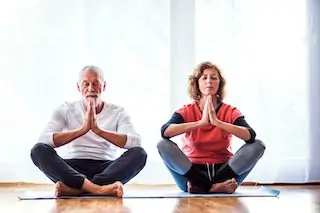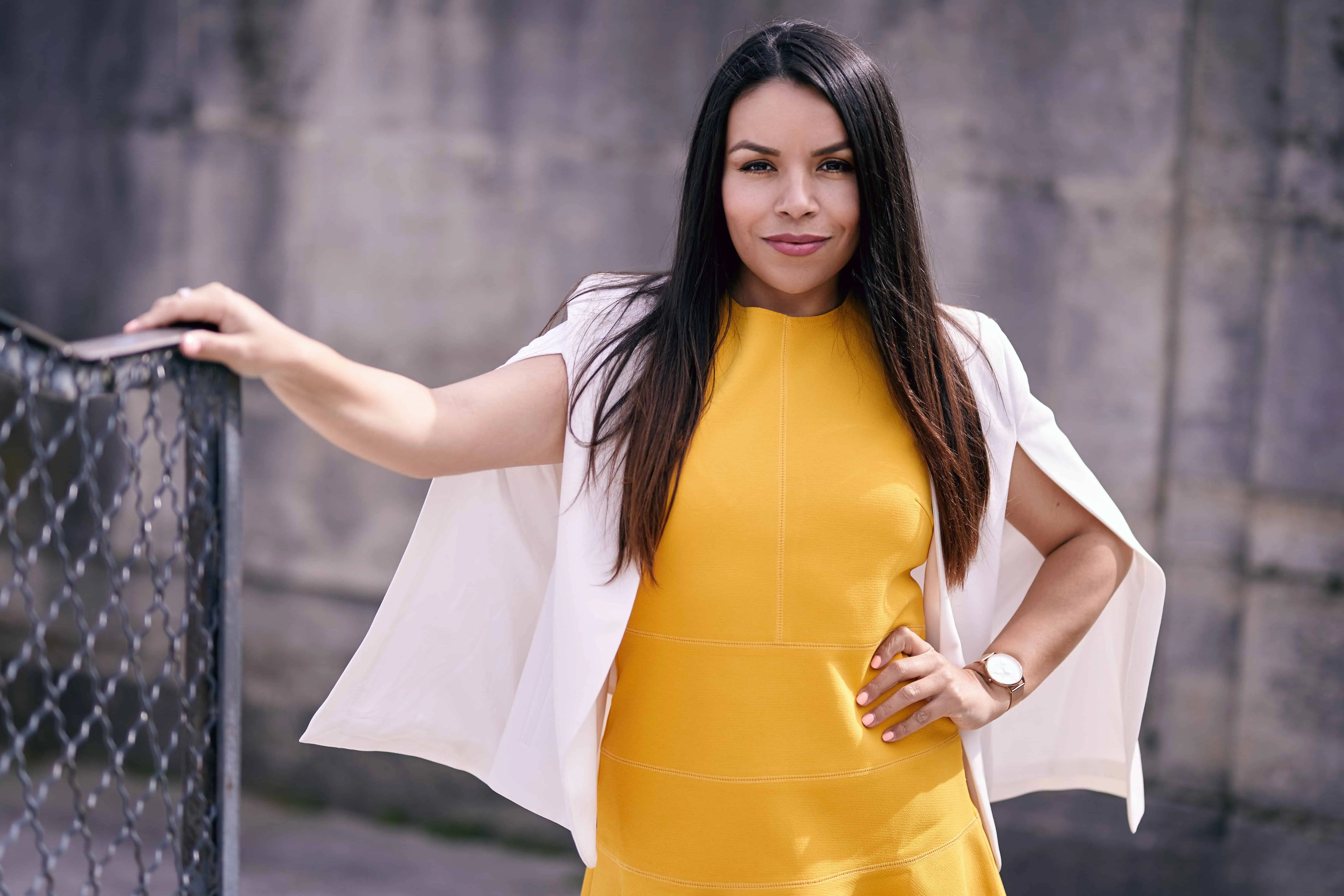Reacting vs Responding. How to Communicate and Handle Anything
 We’ve all been there. You’re in a heated argument and suddenly you start yelling things you never really meant to say. You react impulsively and aggressively to the situation at hand, without thinking about how you’re communicating and what effect your words may have. If you’ve ever seen Marriage Story, it’s a bit like the scene when Adam Driver tells Scarlett Johansson he wishes she was dead and had never been born and then immediately drops to his knees in tears, regretting what he said. This is a prime example of reacting.
We’ve all been there. You’re in a heated argument and suddenly you start yelling things you never really meant to say. You react impulsively and aggressively to the situation at hand, without thinking about how you’re communicating and what effect your words may have. If you’ve ever seen Marriage Story, it’s a bit like the scene when Adam Driver tells Scarlett Johansson he wishes she was dead and had never been born and then immediately drops to his knees in tears, regretting what he said. This is a prime example of reacting.
The truth is, a lot of our lives are spent in reaction to the situations we find ourselves in. Those reactions, however, may not always be the best thing. Our communication falters and hurts others, creating consequences we never intended. Most of the time, we react to others without thinking too much about it.
Responding, however, is something completely different from reacting. Responses are more composed and you have the ability to express how you feel in a more honest and non-threatening way. Responding helps you learn about yourself and your emotions.
The words “react” and “respond” may seem the same semantically, but there is a big difference between reacting vs responding in our daily lives. Today we’ll be talking about how we can communicate in the best possible way with one another to help foster healthier ways of dealing with our emotions.
React vs Respond

Responding to an argument, rather than reacting, is what we should strive for in all of our relationships. When we respond, we give ourselves the space to think through things and to come out of a place of understanding and compassion. We are less likely to point fingers and attack the other person or to blame them for making us feel a certain way. We think through all the possible responses the other person could have, and we consider what is best for ourselves and for others.
We’re all guilty of reacting instead of responding in situations because of our emotions often do get the best of us, and that’s okay – we’re human. But whenever we say something without really giving it thought, we become victims of allowing our unconscious to run the show. At first, it may seem like we should trust how we feel in the present moment and run with it, but this can be an illusion. Instead, doing this can allow our emotions to go on auto-pilot and cause us to not be in control of how we’re expressing how we feel. We simply do what we want and say what we want, without awareness of its implications.
The first step is recognizing when we react to situations and when we have the wherewithal to respond instead. Here’s a concrete example.

Respond: Your sister borrows your car and gets in an accident, but instead of immediately responding to the anger you feel, you take a breath and pause for a moment. Once your impulse to blame her has subsided, your first response is a concern for your sister. Is she ok? Did she get hurt? Second, you realize that your car can be fixed and that it is just an object. You’re able to express your feelings in a more calm and composed manner.
Respond vs react: 5 tips
Tip #1: Give people the benefit of the doubt.
Always give others compassion and understanding. Most people that truly care about you and have invested time to be in your life want you to be a better person and they want you to be happy. They’re not always coming from a place of malice. When someone is telling you something from their heart, listen to them, even if you can feel that your immediate reaction is to be angry or to blame them for not understanding you.

Tip #2: Have effective communication tools.
Having effective communication tools are essential to navigating how to properly respond to someone when we are initially inclined to react out of anger or let our emotions get the best of us. When we have effective ways of communicating, we are more in control of our emotions. That control in itself gives us the core foundation that women look for in emotional security.
You may ask questions like: Why do you feel this way? What can I do to make it better? How can we solve this situation? Instead of blaming your partner for doing something, choose more effective ways of expressing yourself. Saying “I can’t believe you did this” could easily be switched to “You made me feel awful because of X, Y, and Z.” Being honest with your emotions and allowing yourself the space to analyze how you feel is one intelligent way to get a healthier conversation started. When you react immediately with your emotions, you allow others to have control over how you feel because you are not in control – and that is not a healthy place to be.
Tip #3: Everybody is a lesson.

There’s a difference, however, from being passive towards others and understanding how to respond effectively. I’m not saying that anybody that comes into your life that disrespects you should be allowed to disrespect you. You can respond appropriately by saying, “No, that’s not okay because of X, Y, and Z.” That can be the end of the story. There’s a difference between being a pushover and having the confidence to know how to respond effectively to a situation. That being the case, it is still important to be able to take a step back and see that even when people treat you badly, they can be seen as lessons in your own life.
Tip #4: Allow a conversation.
Sometimes having a conversation with someone and confronting someone about something can be incredibly uncomfortable. Relationships are a back and forth – not one person against another. It’s important to be comfortable with being assertive and to begin that conversation if there’s something that makes you feel uncomfortable, angry, or sad. It isn’t a confrontation; it is a dialogue. Responding is allowing that dialogue, not pinning the other person against you.
If you don’t allow a conversation, then you can never know how the other person truly feels. A relationship is all about dialogue. Often I have clients that are going through breakups and they communicate with me in a complete reactionary mode, full of adrenaline and emotion. The problem with that is that they’re not being self-reflective or taking the time to have a calm consciousness. You can be more in control of how you feel when you come from a place of stillness and calm. When you look at conversation not as a confrontation, but as a way of understanding, then you can walk away with your emotions in check.
Tip #5: Empower yourself.

When you’re able to assert yourself and have positive results from it, that can be incredibly empowering. Choosing how to communicate effectively, responding instead of reacting, will empower you.
React vs responding relationships
It’s important to remember that not just in our daily lives, but especially in our relationships it’s important to respond and not react to our partners. When we react, we create environments of negativity and anger. We show that we’re not emotionally mature. People that are in touch with their emotions and how they want to communicate create emotional security and a core foundation that is essential in a partner.
When you react instead of responding to your partner, you create hostility and you don’t allow a conversation. We can learn more from one another and become closer to our partners when we open up a dialogue, and the first step in doing that is choosing to respond instead of reacting.

React vs responding exercise

You don’t have to react immediately. You can pause, breathe, and not act. Watch the emotional urge come and go. Sometimes that can take a few seconds, sometimes it can take a couple of days or even a month. Be able to say that you need the time and space to be able to remove yourself politely from the situation.
Pause, watch the reaction go away, and then consider what the most intelligent and compassionate response would be. What can you say that will calm everyone down and make the situation better? At first, you might make a mistake and not say it exactly as you want, or what you say might have the opposite effect. Don’t be hard on yourself – just practice being more mindful next time. Take note of what it was that triggered you and be aware of when that happens again.
So, to summarize: be mindful, take your time to respond, and then consider a thoughtful and appropriate response.
If you liked this article and found it helpful to you, please comment below. Let us know what helped you and why! Remember, you are always loved.
Your coach,
Apollonia Ponti







Wow! So amazing, I really like the advice. Thanks Ponti
HI Yanick. Thank you for stopping by and commenting on my blog! Glad you enjoyed reacting vs responding and how to communicate and handle anything.
Wishing you the best 🙂
Apollonia
Great blog wow!
Hi Eric. Thank you for taking the time to read reacting vs responding! I’m so glad you enjoy my content! Thank you for stopping by and commenting.
🙂
Best,
Apollonia
Thank you Apollonia, I find this article to be very resourceful. I think differently now.
Hi Samuel,
Thank you for reading my article about reacting vs responding. I appreciate you and your comment.
Best,
Apollonia
You know, after reading it several times, I still realized that I completely agree with your blog posts. I very much support this opinion and I am also sure that everything should happen with a cold mind, because otherwise nothing. I made a lot of mistakes without realizing this before. Received refusals, shouted, angry and all because of some little things that eventually passed me by. I think that exchanging for such a thing does not make any sense, especially since health suffers and not only me, but also my relatives suffer from it. So take care of yourself and loved ones. I look forward to the next posts!
I am so glad that i found your website. I ‘ve been in this situation where our relationship with my LDR boyfriend has been tested. I am trying to figure things out with the help of your blogs and videos on youtube.
Whatever the outcome may be, i am still glad because i grow as a person with all your relationship advice.
More power to you Apollonia and God Bless!
Hope you help a lot of couples or individual who are struggling in their relationship.
Hello Michelle, Thank you for reading “Reacting vs Responding. How to Communicate and Handle Anything” In order to get advice pertaining to your situation, I would encourage you to book a coaching session with her so she can help. Here are the links with more information. https://www.apolloniaponti.com/private-coaching/
Apollonia carefully crafted her products that address a multitude of subjects which you may find helpful as well: https://www.apolloniaponti.com/products/
If finances are an issue, Apollonia provides free content and I know you can find information that will help. 🙂 https://www.apolloniaponti.com/blog/ and https://www.youtube.com/c/ApolloniaPonti
Take care and best of luck!